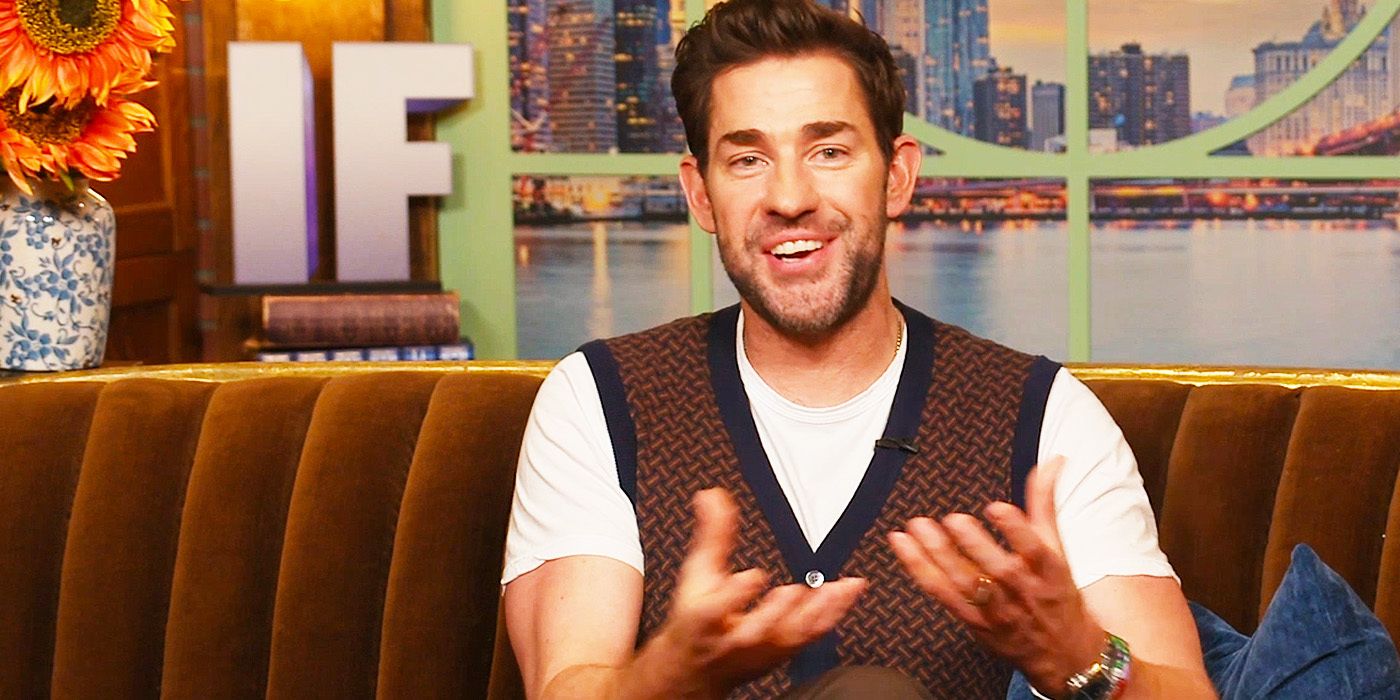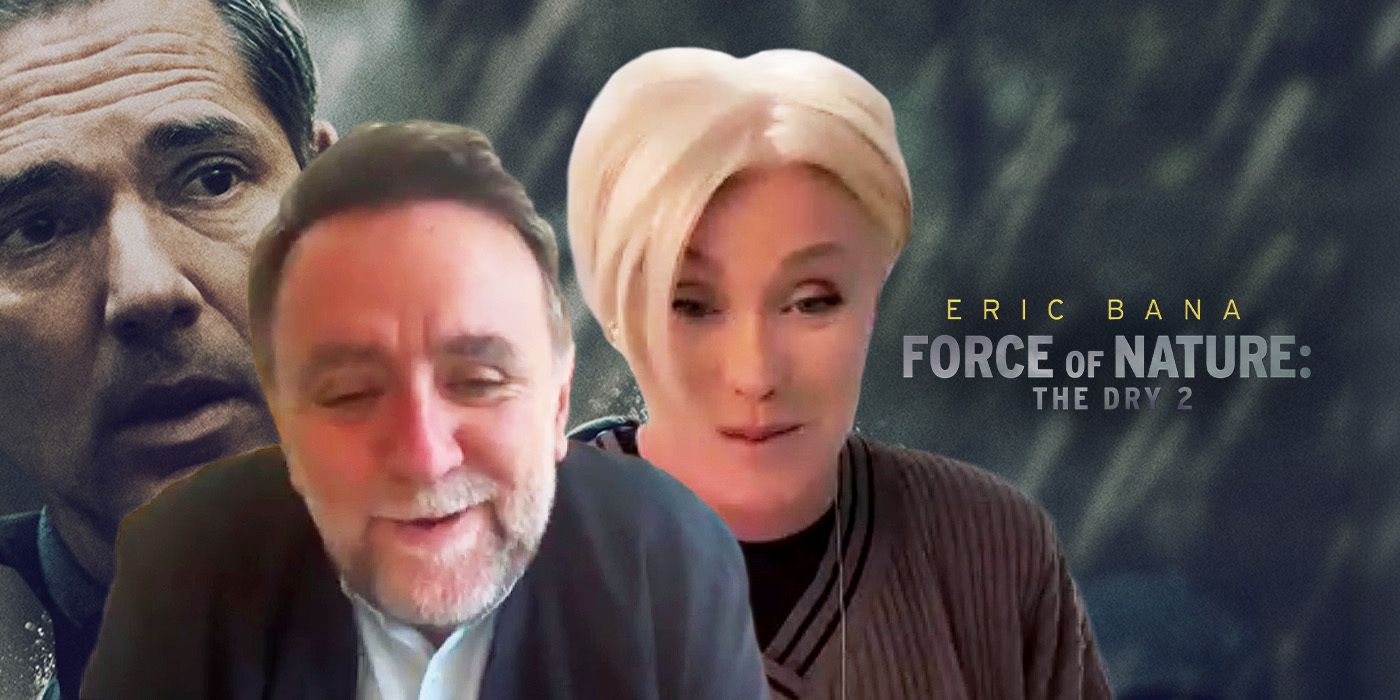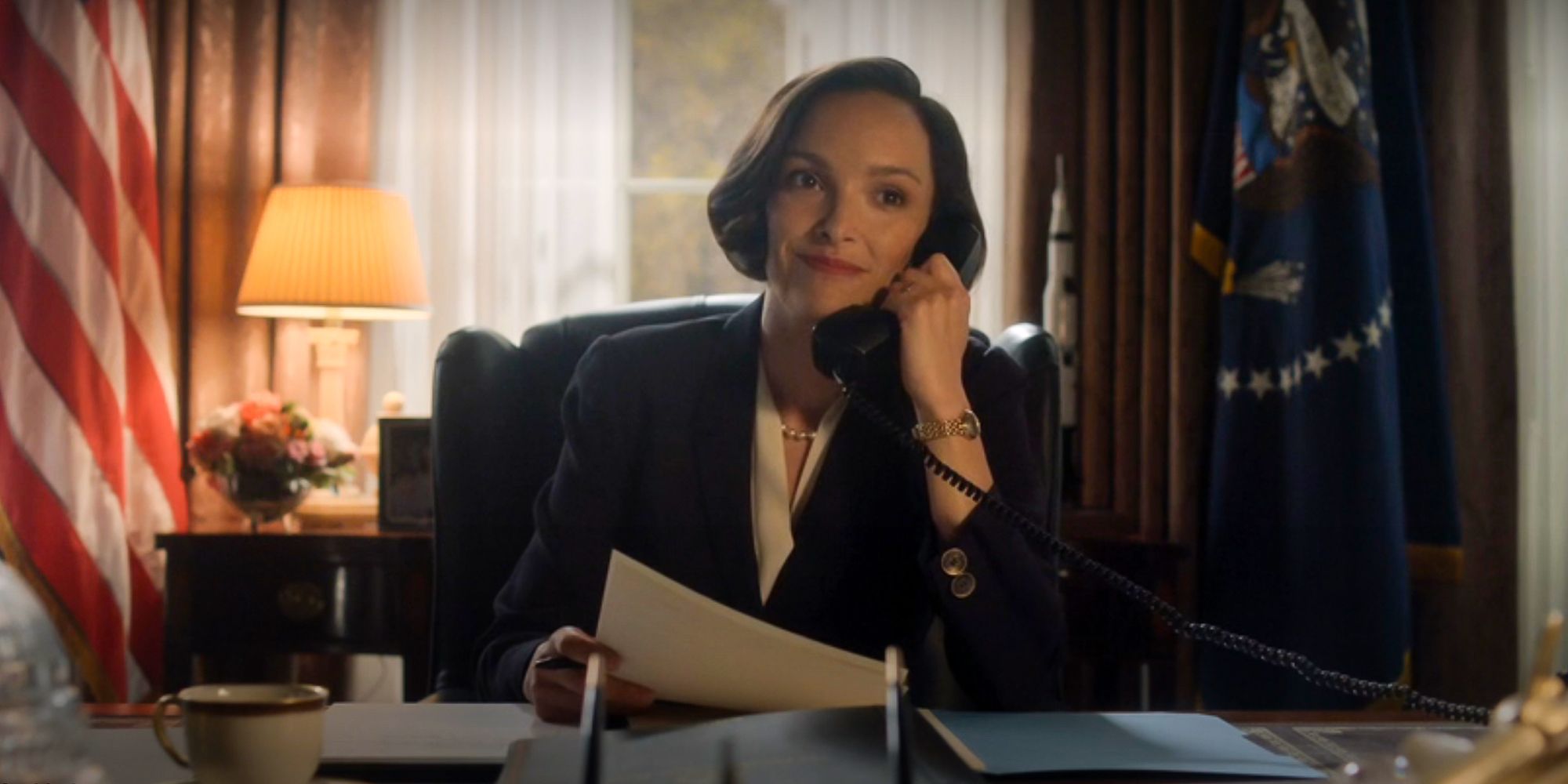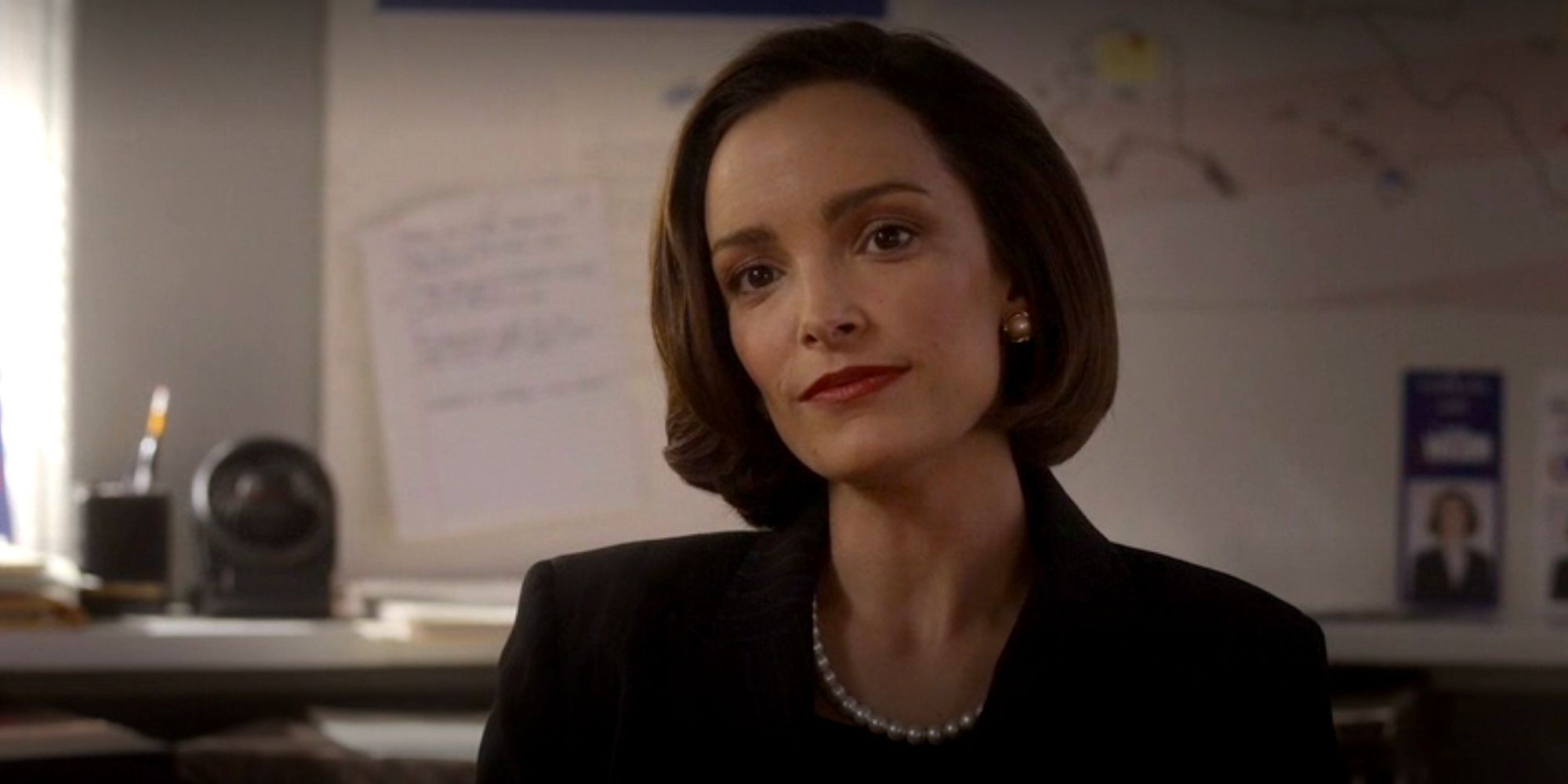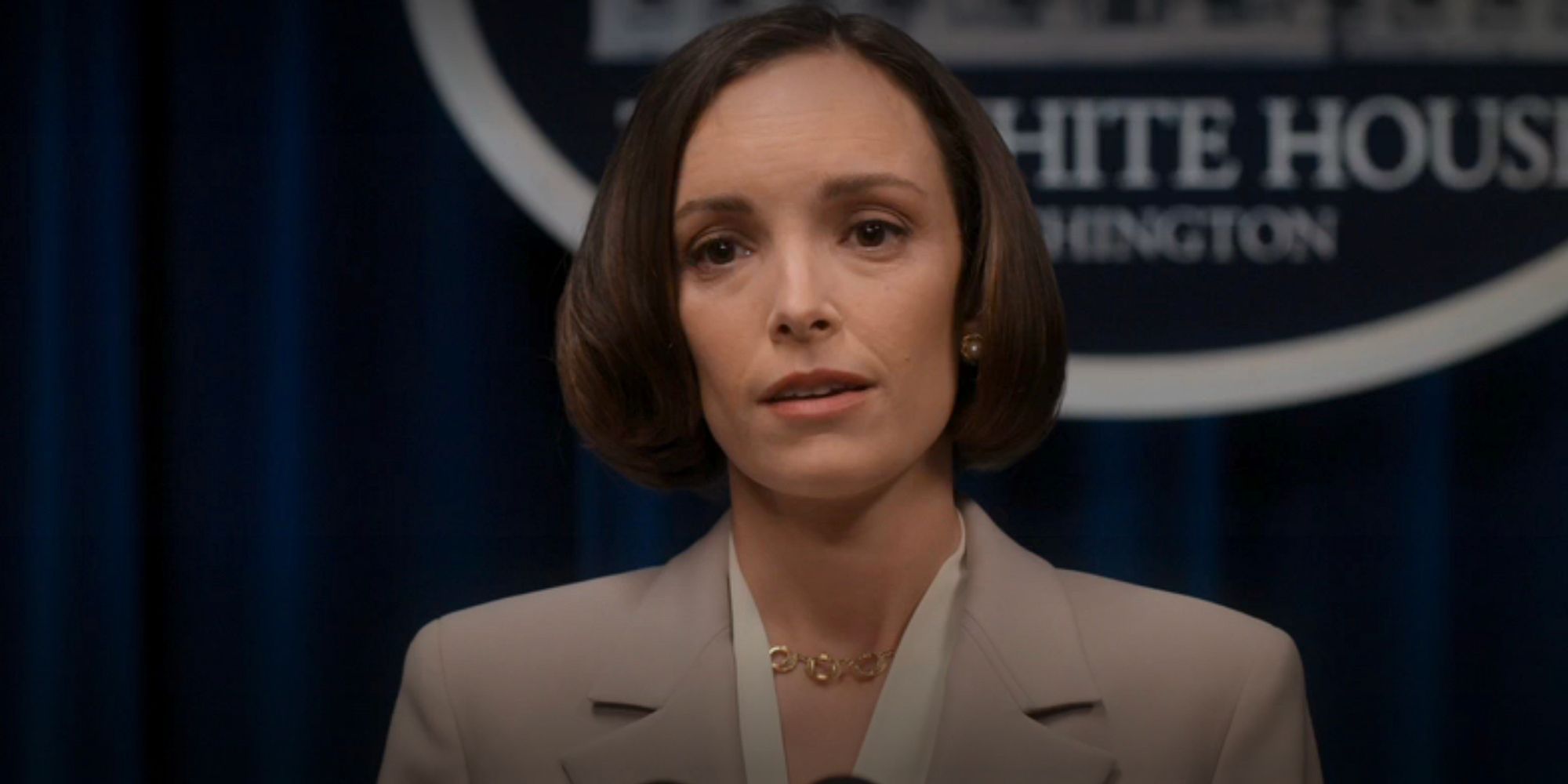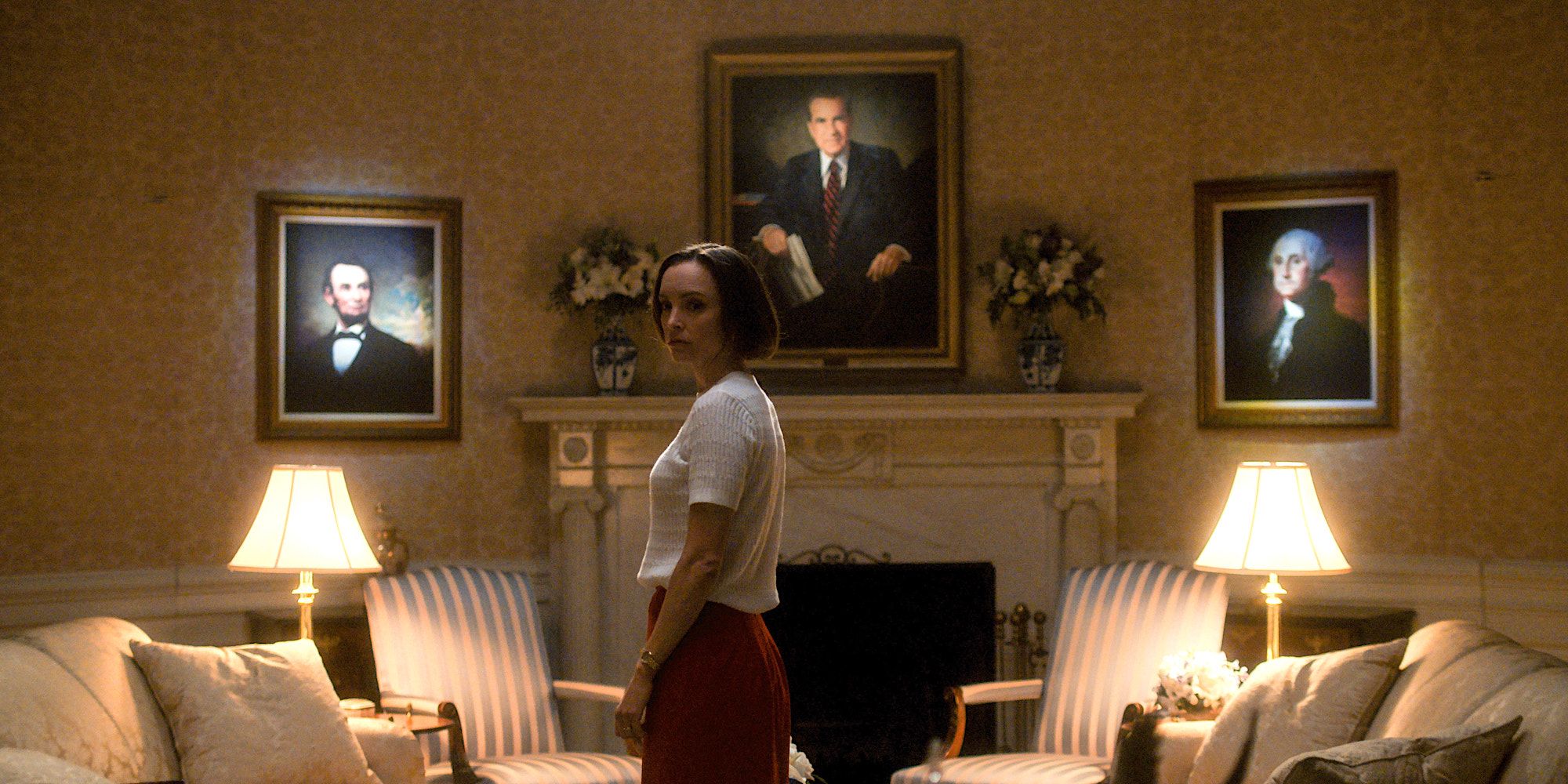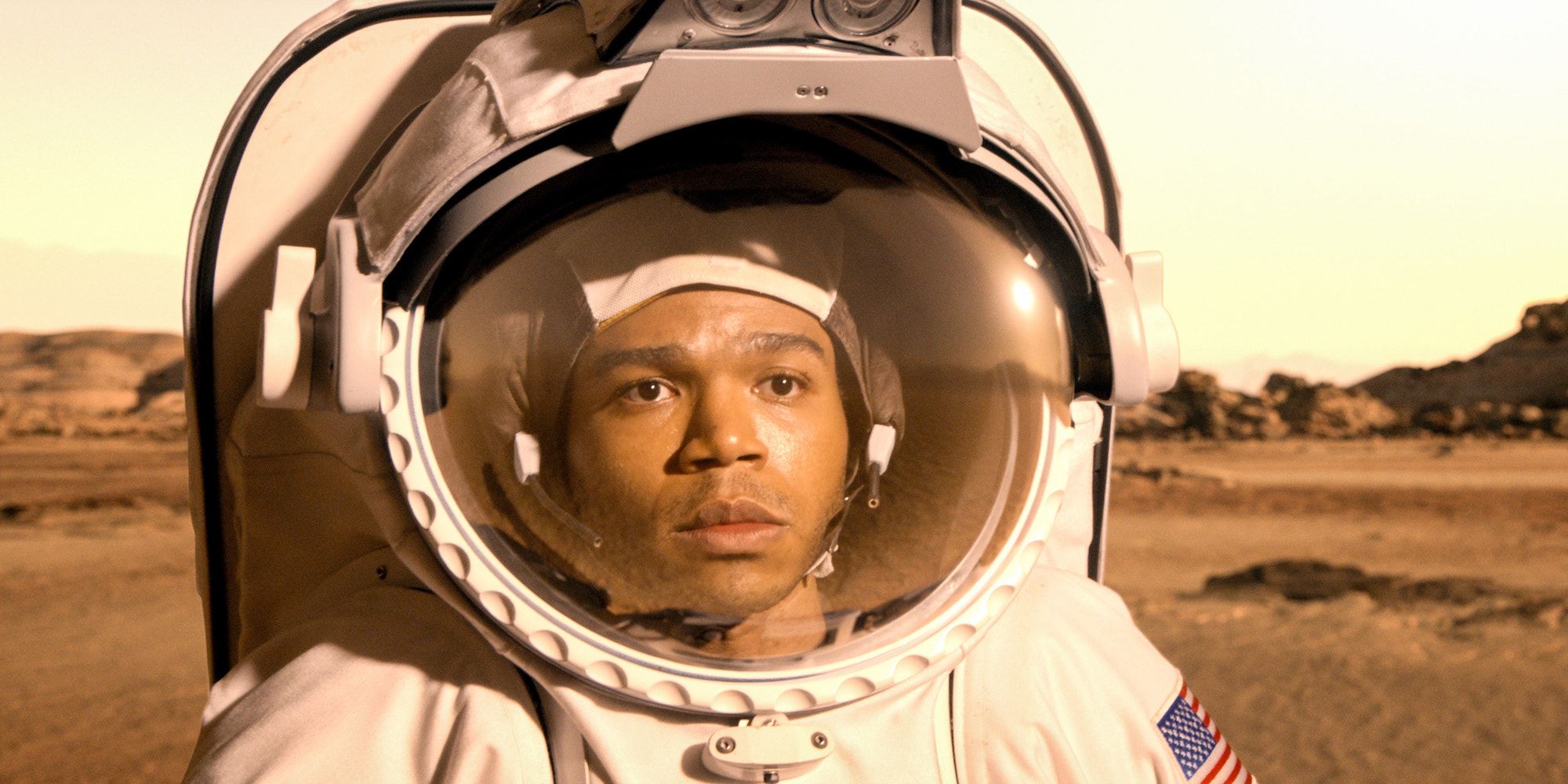The arc of Jodi Balfour's Ellen Wilson reaches its most monumental stage in For All Mankind season 3, as the former astronaut and NASA Administrator becomes President of the United States in the Apple TV+ series' alternate depiction of 1992. Primarily set in 1994 and 1995, For All Mankind season 3 fixates on humanity's race to land on Mars, as NASA, the Soviet Union, and the privately-run Helios vie to touch the Red Planet's surface first.
Strife between personal authenticity and professional success has defined Ellen's journey through three decades of For All Mankind. Concealing her sexuality in favor of life as a public figure led Ellen to marry her likewise-gay friend Larry Wilson (Nate Corddry), while it also drove away her lover Pam Horton (Meghan Leathers). For All Mankind pays off Ellen's perpetual struggle in season 3, episode 9 when she, to the world's surprise, comes out as gay during a press conference. Ellen's groundbreaking speech and eventual reunion with Pam in For All Mankind's season 3 finale completes a lifetime of hardship for Balfour's character and beckons a future in which Ellen's existence as a queer individual no longer burdens her.
Balfour's career has taken her from TV series such as Bomb Girls and Quarry to the Emmy Award-winning Netflix show The Crown in which she played First Lady Jackie Kennedy in 2017. The South African-born actor also guest-starred in HBO's True Detective season 3 in 2019, the same year she debuted as Ellen in For All Mankind season 1. Balfour will soon feature in a second Apple TV+ series, as she is slated to appear in Ted Lasso season 3.
Screen Rant spoke exclusively with Balfour about her experience of playing the most pivotal stretch of Ellen's arc, her character's journey leading up to For All Mankind season 3, and what she hopes lies ahead.
Screen Rant: I love this show, and I love seeing you in this role. First, I have to mention that before you became President Ellen Wilson in For All Mankind, you played Jackie Kennedy in The Crown. How cool is it to say that you’ve now been both first lady and president?
Jodi Balfour: [Laughs] It’s pretty cool. You know, I hadn’t thought about that and somebody brought that up for the first time the other day, and I was like, “Woah, you’re right! I think that might be a novel thing in Hollywood.” It’s pretty cool. Very different circumstances, very different eras, very different women, but plenty of time at the White House, I guess [laughs].
The interesting thing about portraying a fictional U.S. President is that you didn’t have a real-life version of them to emulate. Did you take inspiration from any politicians or world leaders that you applied to Ellen’s presidential persona?
Jodi Balfour: Yeah, I mean, I am a somewhat political person, and I’m pretty passionate about female leadership. I watched a lot of, at the time — I’m trying to think back to when I first started prepping for this. The pandemic has fudged everything, but I definitely did. I also work with a dialect coach for a long time in my career, and she also works sort of as a vocal coach, and we worked a lot in terms of moving into more speechified performance and the physical work that comes along with that.
But, you know, it doesn’t take a lot to look around, thanks to YouTube, watching great women like Elizabeth Warren, and women that came before her. Obviously, Kamala Harris gives speeches most recently but also looking back into the past a little bit. I did watch [former Texas governor Ann Richards] give this one specific speech about a million times. But yes, the short answer is yes. I drew a lot from, obviously not female presidents, but lots of female politicians in America.
It’s been so fascinating to see Ellen grow from this budding engineer and astronaut to one of the most powerful people in the world. How do you believe this advancement of her professional life over 20 years has impacted Ellen’s sense of self by season 3?
Jodi Balfour: I mean, hugely. You know, the journey that she’s gone on — certainly that we’ve witnessed — as an astronaut candidate who’s pretty soft-spoken, and kept to herself, and studious, dedicated, very committed to the space program, but not necessarily someone who walks into a room and you take immediate notice, to where she is at the end of season 3 — I think there’s been an enormous amount of growth in not only her accomplishments but also her understanding of what she’s capable of and really sitting in her capabilities and sitting in her power.
One of my favorite scenes in this back half of the season is in 310 where Jim Bragg (Randy Oglesby), her VP, comes into the room after she’s come out in 309 and updates her on all the bad news, one could say. She really just sits and listens and has the confidence and the conviction to push back on everything he’s saying in a way that I certainly imagine would be incredibly difficult in a moment like that. So, yeah, it’s been an amazing arc for me as an actor, certainly, and I think a really cool one to watch as a character.
Speaking of that scene you mentioned, I have to say, I absolutely loved that line about the Republican Party needing a little destroying.
Jodi Balfour: [Laughs] Isn’t that so good?
It was the most satisfying thing to hear at the end.
Jodi Balfour: Are you kidding? I think I did a slightly terrible job at concealing, as a human being, how much I enjoyed saying that line [laughs]. I see myself a little bit in that moment.
Yeah, I could definitely tell.
Jodi Balfour: [Laughs]
It was also interesting to see Ellen really face the reality that despite reaching a position of such power, there are so many problems that she can’t fix, like having to hide a part of herself, and seeing how the world treats openly queer people. When you think about scenes like Ellen watching Will Tyler (Robert Bailey Jr.) come out in episode 6 and her heart-wrenching conversation with Pam in episode 8, how do these moments impact the trajectory of Ellen’s character that leads her to that pivotal action she takes in episode 9?
Jodi Balfour: I mean, hugely. Both of those moments you called out — the Will Tyler moment and then her conversation with Pam — and you know what Pam says to her in that conversation about thinking when she was sworn in, this was going to be an incredible moment for the community, that she would fight for their rights, that she would help change things, and she doesn’t. I think all those incredibly meaningful moments are directly connected to what happens in 309 when she decides in that press conference that’s designed for Larry to come clean, that actually, the more important thing to happen is for her to fully own who she is. Yeah, it’s all part of it, and it was a slow burn that was so well crafted, I think, by the writers, and really fun to play.
Ellen’s public coming-out address is possibly my favorite moment of the entire show. Given that this was truly three seasons in the making, what did it feel like to shoot that scene, read those lines, and finally arrive at the defining moment of Ellen’s arc?
Jodi Balfour: It was incredible. Very emotional for me. I think very emotional for a lot of people. The day of, actually, in that press conference, all the writers came and sat in and watched, which doesn’t happen very often on our show. It just felt like a real team moment that we had all been working toward, and it was really, really important to all of us. I keep saying, I think this will probably — no, I’m pretty confident that this will be one of the most important things I ever got to do as an actor because I don’t know that we’ve seen much of this on television, and for her to come out in the way she does come out, for her to get that moment and really take that moment, it was really, really meaningful to me.
When it comes to queer representation in media, far too often we see the “bury your gays trope” or queer characters being denied a love story, or just suffering excessively. Obviously, Ellen goes through a difficult journey, but what does it mean to you to see her reach that light at the end of the tunnel, and especially, reunite with the love of her life in the finale?
Jodi Balfour: Yeah, it meant so much. I think you’re spot-on, and I think to show queer folks in moments of joy, too, and moments of self-actualization, and celebration of themselves is really, really important, as you said, not just the struggle always, you know? Although, that’s obviously a fundamental part of so many stories. It was huge, and I feel really hopeful for Ellen and Pam. I don’t know what comes next, but that moment at the end of 310, it says a lot without saying much at all. And I certainly am excited for them to have a future together. I hope the writers give that to us.
I’ve loved watching Ellen grow from season 1 when she came out to Deke (Chris Bauer) to a not-so-great reaction to now in season 3, when she gathers the courage to get up in front of the entire country, as president, and say that she’s gay. What are your thoughts on how far she has come?
Jodi Balfour: I mean, it’s like, could there be a more bendy arc? Listen, I think finding herself in this immense position of power in season 3 as the president, as well as people around her, this hasn’t been a solitary journey. There’s been a lot of bopping and weaving, but there’s also been a lot of slow ushering toward this moment — very much led by her own agency, of course, but things don’t happen in a vacuum. We look back to that conversation with Deke in season 1 and how crestfallen Ellen is afterward and just what an impact that has on her. I mean, we sort of see her do exactly what he suggests she does for a very long time.
But, you know, the theme of the season is very much, particularly in the back half, questioning, was it all worth it? — what we’ve all done and the immense technological achievement, for sure, but what’s the cost been? And was it all worth it? I think that weighs very, very heavily on her toward the end and is very much a part of what happens in 309. But yeah, it’s been a slow and steady trudge toward this moment, I think. The amount of relief I think the character feels, and certainly I feel, that she has reached this point is a lot [laughs].
In some ways, Ellen’s story in season 3 could be viewed as the culmination of her arc. I'm sure there are endless possibilities for what a 60-something-year-old former president could be doing in the 2000s. Are you able to confirm whether or not you will be returning for season 4?
Jodi Balfour: I’ll be around, yeah. I’ll be around. Probably not in as much of a capacity as previous seasons, but it’s really important to me and to the writers that Ellen’s a part of the world, and we know that she also means a lot to the audience. I really wish I had any information [laughs]. I don’t, but I’m not disappearing.
If you were in charge of the writing, what would you anticipate for Ellen’s story in season 4?
Jodi Balfour: I mean, I keep saying, can her and Pam just sail off into the sunset happily together? [laughs] I think what that looks like is, I don’t know, there’s that — it takes a turn for sure — but there’s that sweet description that Pam says to Ellen in that conversation they have in 308 about what their life might have looked like, and I really like that first part. Not the part where Ellen gets in the car, and goes to work, and it eats away at her [laughs], but the first part where they’re sitting on a porch somewhere with some dappled sunlight, drinking a cup of coffee together, and they’re going about their days in partnership and in peace.
What that looks like for Ellen’s connection to the space program, I’m not sure exactly, but I think she’s probably earned the right to take some vacation time with the love of her life [laughs].
Yeah, definitely. Would you like to see Ellen become almost like Karen (Shantel VanSanten) and lead her own space agency?
Jodi Balfour: I could see her becoming a consultant for NASA in that way or perhaps a liaison continuing to help communication between the government and NASA. Or, I don’t know, maybe we take a leaf out of Sally Ride’s book yet again, and she creates some sort of educational foundation for children, for girls in tech. I don’t know. I think there are a lot of possibilities, but I can’t imagine she would suddenly divorce herself entirely of this passion that she’s had. But I also think a quiet life sounds quite nice for this incredibly hard-working human being.
For All Mankind Season 3 Synopsis
In season three, the Red Planet becomes the new frontier in the Space Race not only for the US and the Soviet Union, but also an unexpected new entrant with a lot to prove and even more at stake. Our characters find themselves going head-to-head as their ambitions for Mars come into conflict and their loyalties are tested, creating a pressure cooker that builds to a climactic conclusion.
Check out our other interviews with For All Mankind stars Casey W. Johnson, Cynthy Wu and Edi Gathegi, as well as writers Ben Nedivi & Matt Wolpert. And catch our SDCC interviews with the rest of the cast!
All 10 episodes of For All Mankind season 3 are available to stream on Apple TV+.


